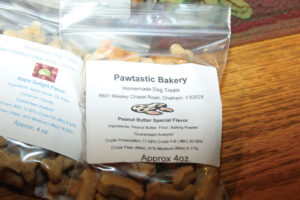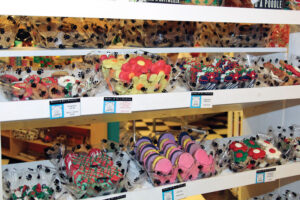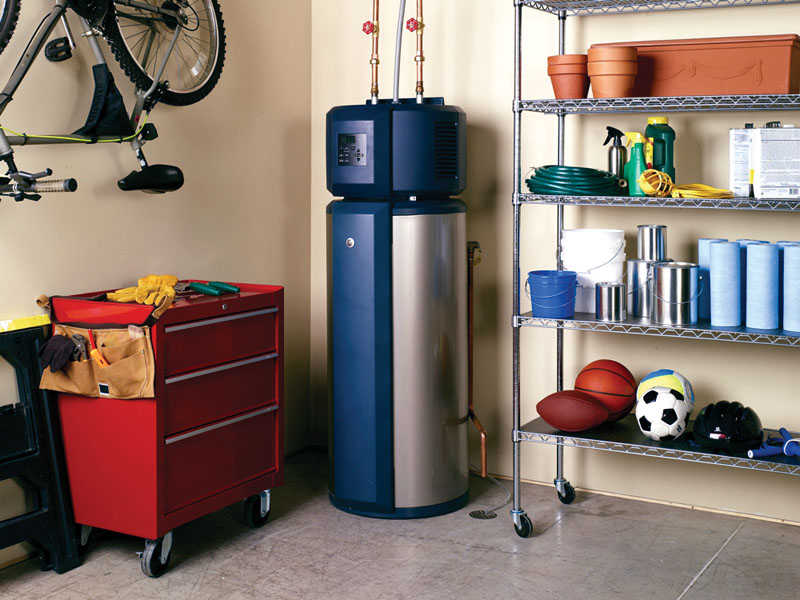 There’s nothing quite like being greeted with joy as you return home after a long day at work. Feeling the love from having someone so happy to see you just lifts the spirits, and that wagging tail says it all! That’s right, I’m talking about the four-legged companion that is rightfully referred to as man’s best friend.
There’s nothing quite like being greeted with joy as you return home after a long day at work. Feeling the love from having someone so happy to see you just lifts the spirits, and that wagging tail says it all! That’s right, I’m talking about the four-legged companion that is rightfully referred to as man’s best friend.
Research has shown that living with pets has multiple health benefits including lower blood pressure, less anxiety and a boost in immunity. And, domestic pets have an increasingly important place in households. Many consider their pets to be another family member and consumers are humanizing and indulging their pets more than ever.

The changing attitude toward these furry family members is very evident when considering the dollars spent annually on their care. According to the American Pet Products Association, 45 million U.S. households provide a home to more than 77.5 million registered dogs. These owners are estimated to spend $58.5 billion dollars in 2014 on everything from food, veterinary services, grooming and more. The largest portion of that total, a whopping $22.62 billion, will be spent on food and pet treats and that number continues to grow.
Due to a variety of commercial dog food recalls, and a desire to have healthier pets, many pet-loving entrepreneurs have capitalized on the opportunity to sell home-baked, healthy dog treats. All it takes is a quick search of the Internet to see that doggy bakeries have exploded in popularity everywhere from large metropolitan areas to small hometowns and rural areas. There may even be one in your backyard.
PupDog Bakery

PupDog Bakery, owned by Rick and Carol Hackler of Arcola, first opened its doors in 2006. The small home-based business has continued to see modest growth year after year. But, it took more than just deciding to make treats to get the business off the ground. There were costs involved in developing the formulas, having them analyzed and filing the appropriate paperwork with the Illinois Department of Agriculture.
According to Rick Hackler, it costs approximately $300-$400 to develop a new product formula. Each product must be submitted to a food analysis lab, which issues a Certificate of Analysis for each one. The analysis includes the required information for pet treat food labeling to exhibit the values for crude protein, crude fat, crude fiber and moisture. Each product label must be annually filed with the Department of Agriculture and a fee paid.
This home-based mom and pop shop has an active and growing online wholesale business at pupdogbakery.com. Moving out of their house into a dog treat factory is, as Rick says, “Absolutely, not a goal of ours. We like the pace and flow of our online business, the rapport we’ve developed with a loyal customer base and new customers continue to discover us with their online searches.”
PupDog Bakery bakes in small, hand-cut batches and hand decorates each treat using simple foods with no more than six ingredients. In fact, they source their ingredients locally from Amish farms and stores, including eggs from free-range chickens and honey from Amish apiaries.
Mid-November through Christmas is their busiest time of year as they work to fill online orders all across the country to consumers, retailers and to restock a mall kiosk they have at Cross County Mall in Mattoon. As is typical with these types of businesses, half of the sales volume happens in the fourth quarter of the year, as pet parents look to buy special items for the holidays.
Pawtastic Bakery

The idea of making pet treats came to Beth Wright, of rural Chatham, because she was always buying treats for her three dogs. She started trying out different ingredients and recipes, and her dogs liked them, as did the pets of family and friends.
Wright started by tweaking recipes she found online, applying for licenses and permits, and getting her recipes analyzed. Pawtastic Bakery officially opened in March 2014.
The bakery has three different kinds of biscuits – peanut butter (their most common), apple delight and a bacon cheeseburger. It has a Facebook page and items can be purchased online through messages on the site. Wright also spreads the word about her business through flyers and she, and husband Kirt, often set up tables at Tractor Supply. You can find her products on display at three businesses in Springfield – Scheels, McCaffrey Family Health Center and Junk in the Trunk.
Millie and Bo’s Barkery

Millie and Bo’s Barkery, in Decatur, has been making pet treats for 10 years. It all began with a vision by Veterinarian Larry Baker for making a pet-centric area around his Decatur practice. Besides the bakery, the area houses the Humane Society, a dog obedience school, groomers, a dedicated dental operating room for his oral surgery cases and veterinary services with five veterinarians on staff.
Dr. Baker’s wife, Angie, is the owner of the pet treat store, which got its name from their two animals. Millie and Bo’s originally started as a dog biscuit and treat business. The business purchased several recipes that already had the analysis done. From the dog biscuits, the business grew into selling food and other treats, along with collars, clothes and dresses, sweaters, bowls and other paraphernalia. They carefully select items so they aren’t in competition with the big box pet supply stores.
The business makes biscuits that vary from pumpkin spice to cinnamon swirl to ham and cheese. It also makes gluten-free treats, and some treats may be dipped in a yogurt chip or carob melt. They also make personalized pup cakes for birthday dogs. The majority of their business is customers who make a beeline for the treats, especially during the holidays and Valentine’s Day.
Store Manager Charlene Fitzpatrick says they currently just have the store-front but are exploring online ordering. The stumbling block is shipping costs, which can often be more than the product itself. They would like to have their entire biscuit line available online.
There is a vast wealth of information online about pet treat recipes, food preparation options for those wanting to start a home-based business and tips to help you navigate the rules and regulations. And be sure to check with your local public health department for information about proper business practices.









